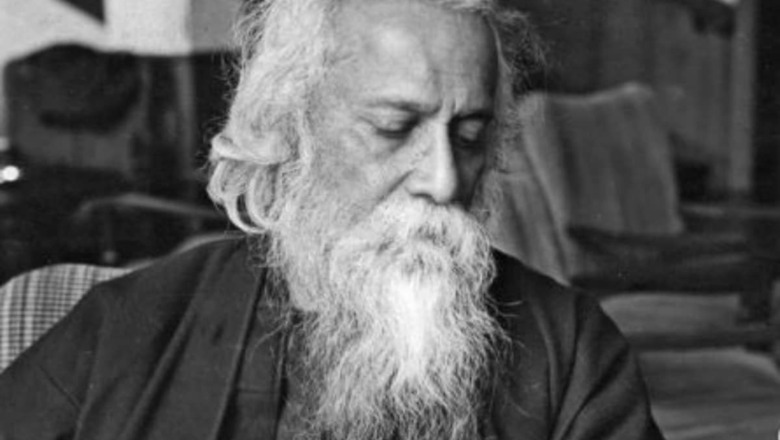
views
Bengal has birthed numerous talents that have not only put the state in limelight globally but also reshaped our art, culture, and music. One such persona to redefine an entire culture and become an important part of our heritage with his words and actions was the Bard of Bengal, Rabindranath Tagore. Today marks the 160th birth anniversary of the first Nobel Laurette of India, a day popularly celebrated as Rabindra Jayanti.
His treasure trove of stories has been serving as a source of inspiration for filmmakers and storytellers as they look up to the polymath’s inventiveness. Attempts have been made time and again to bring his stories alive on screen and modernize it, but bringing his poetic work on celluloid requires a certain calibre as Tagore’s works despite being set in a different era were already ahead of their time.
However, some of the film adaptations of the 21st century do stand out because of several reasons, and today we take a look at some of those films that attempted to pay a tribute to Gurudev Tagore, in their own ways.
Chokher Bali
Director Rituporno Ghosh had found his spiritual guide in Tagore since his childhood days and has paid tribute to the artist through a couple of his films. His 2003 adaptation of the novel Chokher Bali perfectly manages to hold up Tagore’s essence despite putting him in a contemporary scenario. Chokher Bali tells the story of a loner widow, who forges a friendship with a girl of her age but the void in her life compels her to desire her friend’s husband. While adapting it on screen, Ghosh was true to the pages for the most part but the director’s touch into the intricacies of the scenes makes it a more stylized adaptation of Tagore.
Chitrangada: The Crowning Wish
Another classic by Rituparno Ghosh, this film is based on Rabindranath Tagore’s 1913 play Chitra. A cultural reformer, his works are universal as his stories are never black and white. Rather it deals with the most complex of human emotions in a simple way and Tagore’s themes, grounded so much in reality makes them transcend time. While Chitra adapts a part from Mahabharata and tells the story of a warrior princess Chitrangada who tries to attract the attention of Arjuna, Ghosh adds his vision and lived experiences to it and bases it on themes like gender identity, struggles of same-sex couples and gender change treatment.
Tasher Desh
Tagore was a social reformer and a supporter of nationalism and his ideologies reflected in his works. His 1933 drama Tasher Desh, which was a political commentary on fascism and freedom of speech, formed the crux of Bengali director Qaushiq Mukherjee’s film of the same name. However, Mukherjee took a complete U-turn from the original story and made a film that is popularly considered as a ‘trippy adaptation’ of the writer’s masterpiece. This fantasy film starts with a playwright searching where Tagore’s play Tasher Desh is being played. Unable to find a show of the play, he takes it upon himself to write his own adaptation and completely loses himself in his script. This psychedelic fantasy on humanity, fascism and revolution unapologetically takes a dark, radical take on Tagore, something that might be quite unimaginable by the Tagore loving audience, but as the playwright says, “What is art? It is the response of man’s creative soul to the call of the real.”
Bioscopewala
Kabiguru’s Kabuliwala, a tear-jerking take on the bond of fathers and daughters formed the source of inspiration for filmmaker Deb Medhekar for his 2017 film Bioscopewala. Tagore’s fruit seller Rehmat is a man who goes around showing films to children through his bioscope in Medhekar’s version, and the story takes a leap from the 19th century to the 1980’s Taliban regime. The political stance of the film is the perfect tribute to the enigmatic man, who spent most of his life standing up for what he believes.
A name that is a part of the collective consciousness of the people of Bengal, Tagore’s literature has been studied, debated upon and respected globally, and it will continue, however, the man himself remains unfathomable.
Read all the Latest News, Breaking News and Coronavirus News here. Follow us on Facebook, Twitter and Telegram.


















Comments
0 comment